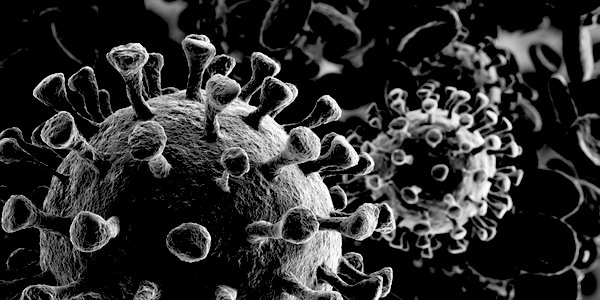We marked March’s fifth anniversary of the imposition of lockdown on the British people by republishing some of our articles from that week. While the mainstream media were baying for stronger and longer restrictions, we were almost alone in criticising lockdown and showing that it would have catastrophic results for zero benefit. We continue to remind readers of the weeks – and the insane policies imposed on us – that followed. Today’s article was first published five years ago today, on May 8, 2020, under the heading ‘Sorry, but we can’t always be safe’.
I KNOW it is difficult, but I wonder if Government advisers might, just for a moment, try to engage with reality. We have had the models. Neil Ferguson’s sex-addled hamster maze of a brain splurted out its toxic prophecies. Out by only an order of magnitude. No consideration of the realities of the world: that people naturally alter their behaviour when presented with a threat, that health system capacity is not fixed, that some are more likely to contract the disease than others. We are not nodes in an algorithm, we are people. We feel good, we feel tired, we’re fat, we’re immuno-compromised, we’re not.
Researchers from Liverpool point out that with a heterogeneous population where the coefficient of variation (the degree to which susceptibility differs) is 2 or 3, herd immunity could be reached at as low as 15 per cent of the population. This makes sense, doesn’t it? That not everybody gets everything that’s going round?
When two thousand sailors are at sea for a month and just under half contract the virus, you think that maybe not everyone is capable of contracting it. When the risk of contracting the virus from someone in your house who is shedding it is only around one in ten, you wonder if the difference is in the infectiousness or the susceptibility. The models don’t model that: to an epidemiologist you are either Susceptible, Infected or Recovered. If they’re feeling very generous they might call you Exposed. But this is not how the human body works. There are a range of factors that prevent you from becoming infected following exposure to a virus, and only one of them is antibody. Nor is circulating antibody the be-all and end-all of immunity. You may be resistant today but not next month; this is difficult to model but it is how viruses and immunity work.
Then there is the ongoing psychedelic charade of the daily press briefings. For two weeks the assorted boffins and tie racks told us we were passing though the peak, on a very gentle sort of downward up. Panic must be maintained. Only for the head man to announce gravely on Monday that the peak has now been passed. We know it has been passed, we could all see it, it’s a graph. To see Matt Hancock parading around his podium, milking the non-existent applause from a non-existent roomful of journalists (on mute) for providing an arbitrary number of tests that no one was asking for until he said he’d provide them. If I have to see that graph of train journeys one more time I’m going to throw my flip-flop. You know why train use has gone down, don’t you? Because they’ve cancelled all of them.
A vaccine is for the birds, track and trace (the same meaning?!) is for the birds. The idea of getting my four-year-old boy to practise social distancing from his classmates when he’s finally allowed back to school is for the birds. The virus is a bad thing, it is a very bad thing, it has killed a lot of people, it will kill a lot more. But when we think about the things we could do to mitigate it we need some sense of what the ramifications are. The lockdown may have saved some lives, it may have cost some, we’ll never really know. We normally accept this ambiguity but after this Government’s terror campaign we are now all demanding one hundred per cent safety. The reality of the world is that it is dangerous: people smoke, for God’s sake. We accept risk in our lives, dreadful things happen every day. Wonderful things happen too. People die, people’s businesses go bust, people cheat, people watch their kids play with their friends, people go to the football, people pat strangers on the back as they queue for their chips. We can never be totally safe – that’s life.











